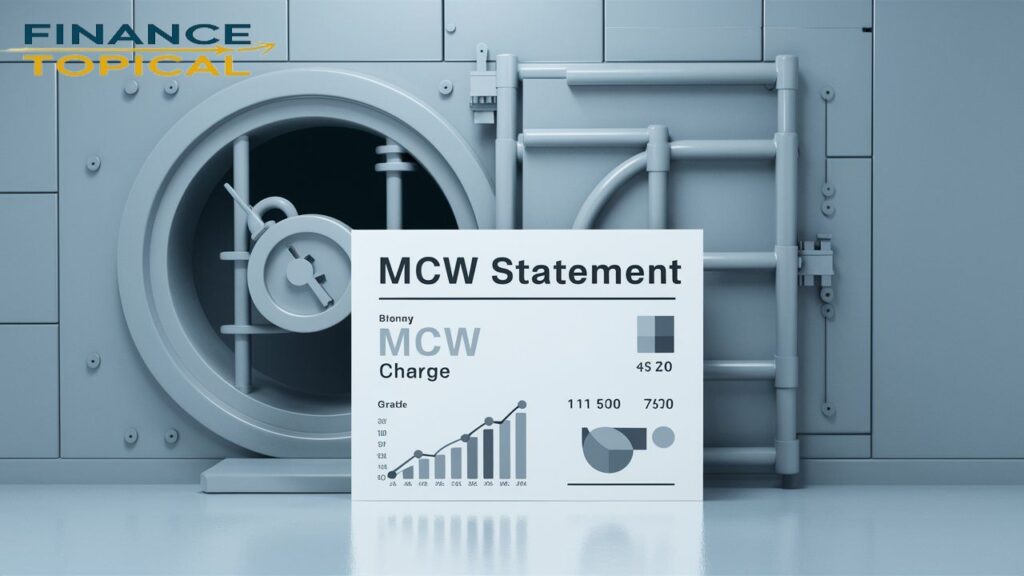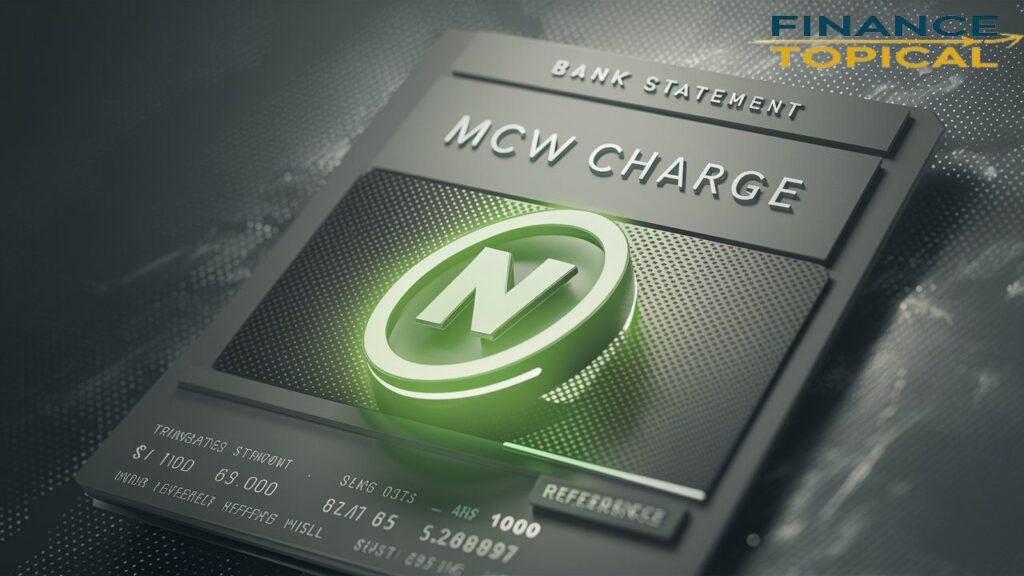Have you ever checked your bank statement and come across an unfamiliar “MCW” charge? If you use a debit card and select “savings” or “checking” when withdrawing cash, that MCW charge stands for “memo cash withdrawal“. This blog post will explain exactly what is MCW charge on credit card, when it applies, why banks charge it, and how to avoid fees.
Key Takeaways on MCW Charges
Here are some Key Takeaways on MCW Charges:
- MCW = “Memo Cash Withdrawal”
- Appears when withdrawing cash with a debit card using “savings” or “checking”
- Banks charge fees to fund cash withdrawals
- Always choose “credit” to avoid fees
- Check statements for unwanted MCW charges
Read this article if you see MMBILL.COM Charge on Your Bank Statement
What Does “MCW” Stand For?
- MCW stands for “memo cash withdrawal”.
- It indicates a cash withdrawal made from a bank account using a debit card.
- The charge appears when choosing “savings” or “checking” instead of “credit” for the transaction.
MCW is essentially the bank’s way of recording cash withdrawals made with a debit card when processed through a savings/checking network.

When Does the MCW Charge Apply?
The MCW charge typically applies in the following situations:
- Withdrawing cash from an ATM using your debit card
- Making a debit card purchase at a retailer and selecting “savings” or “checking” to pay
- Getting a cash advance at a bank or financial institution with your debit card
In all cases above, choosing the “credit” option avoids the MCW charge. Selecting “credit” processes it as a credit card purchase instead of a cash withdrawal from your bank account.
Don’t worry and read this article if you see NYA*Air-SERV Charge on Your Bank Statement
Why Are Banks Charging an MCW Fee?
Financial institutions charge MCW fees to cover the costs of providing cash withdrawals via debit cards.
Just as merchants pay small credit card processing fees, banks similarly pay to access cash which they in turn provide to customers in the form of withdrawals.
The MCW fee helps offset the infrastructure and labor expenses associated with having cash available 24/7 across branches and ATM networks.
Read this article if you see OF London GB Charge on Your Bank Statement
How MCW Charges Appear on Statements
On your bank statement, MCW charges are listed similarly to other transactions, with some key details included:
- Date & time: When the cash withdrawal occurred
- Description: Listed as “MCW” or “Memo Cash Withdrawal”
- Amount: The withdrawal amount
- Balance: Account balance before/after
Here’s an example MCW charge on a statement:
| Date | Time | Description | Amount | Balance |
|---|---|---|---|---|
| 01/01/2023 | 1:00 PM | MCW | -$170.00 | $8,830.00 |
In this case, the customer withdrew $170 cash on January 1st at 1:00 PM, reducing their account balance from $9,000 to $8,830.
Read this article if you see HFT ePay Charge on Your Bank Statement

How to Avoid Paying MCW Fees
There are several steps you can take to prevent getting charged MCW fees when withdrawing cash:
Always Select “Credit” for Debit Card Transactions
The easiest way to avoid MCW charges is to choose “credit” instead of “savings” or “checking” whenever you use your debit card.Selecting “credit” processes the transaction through the credit card network, so it won’t incur a cash withdrawal fee. The money still comes out of your checking account, but it skips the MCW charge.
Use a Credit Card for Cash Advances
Withdrawing cash as a credit card advance also prevents MCW fees. When you get a cash advance from an ATM or bank teller with a credit card, it draws funds from your credit limit rather than directly from your bank account.This method shifts the fee to your credit card company instead of your bank account. Just be aware that credit card cash advances typically have higher interest rates.
Withdraw from In-Network ATMs
If you need to use your debit card for cash, stick to your own bank’s ATM network. Out-of-network ATMs often charge extra fees that get labeled as MCW charges on your statement. By using an in-network ATM that’s affiliated with your bank, you can at least avoid those additional out-of-network charges.
Conclusion
Understanding what MCW means can help you catch unwanted fees and take steps to avoid them in the future through smarter debit card usage.
Let me know if you have any other questions!

Daniel, a seasoned professional with over 5 years of experience in banking, property, and finance, brings a wealth of expertise to the table. This authoritative blog is meticulously curated to provide you with the most up-to-date financial insights. Delving into the dynamic realms of banking and mortgages, Daniel’s passion for finances shines through every post.










